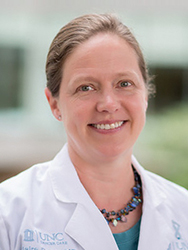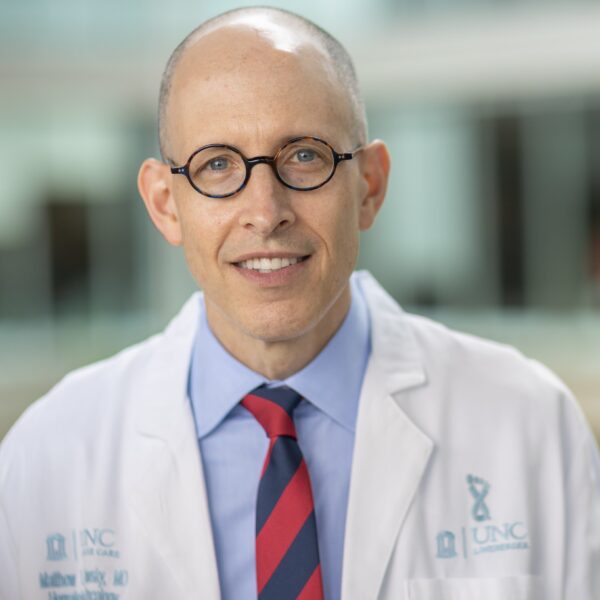Clinical Research Program
The Clinical Research Program is organized into multidisciplinary disease-site groups, with each featuring radiation, surgical, medical, pathology, and imaging input and, when appropriate, pediatric and gyn/oncology specialists. Research accomplishments span the gamut from drug trials with correlative science, to important surgical care questions, to testing new devices for radiation delivery. Program members collaborate in the iterative process of taking exciting basic science leads into clinical investigations that in turn feed back to the laboratories to refine scientific approaches. This effort depends upon a well-organized clinical care system interacting with the rich blend of investigators engaged in basic and population-based research. UNC has the advantage of being a large, full service university. Opportunities to interact with members in the Schools of Pharmacy, Public Health, Nursing, Dentistry, Business, and Arts and Sciences add significant strengths to the program. Our primary aims are to improve outcomes for our patients with cancer, for patients treated by other practitioners in our region and the nation, and to enhance our understanding of tumor biology.
In pursuit of our mission to integrate translational research and novel therapeutics, the goals of the program are to:
- Develop research programs grounded in clinical care that encourage contributions from all members of the cancer research community, including clinicians and scientists from surgery, radiation and medical oncology, pathology, radiology, health economics, quality of life, and other disciplines, with particular attention to junior faculty.
- Perform investigator, NCI sponsored, and pharmaceutical company sponsored Phase I-III clinical trials that will foster novel treatments and improve clinical outcomes.
- Create partnerships with basic, clinical, and population sciences faculty at UNC, other universities, and industry.
- Refine combined modality approaches integrating surgery, radiation, and chemotherapy in treatment of localized tumors.
- Develop academic and community networks of oncologists from all disciplines to participate in clinical trials and collect relevant biospecimens.
- Collect biospecimens to identify tumor and host characteristics associated with outcomes to recognize and exploit heterogeneity within diagnoses permitting us to refine treatments using patient specific tissue-based and germline genetic factors.
- Develop and refine new trial methodologies through analysis of our own and cooperative group trials.
The program revolves around its Developmental Therapeutics group (DTG) hub, which focuses on early phase trials in solid and hematologic malignancies. This group has members from our major disease-specific research groups as well as faculty in brain tumors, sarcomas, and other rare diseases. Human translational concepts that emerge from the basic and population sciences are also coordinated and supported through this mechanism. Our biostatisticians provide service to program members through collaboration as well as new research into clinical science methodology. Strong disease-specific sub-groups with larger translational and clinical trials portfolios include GI, GU, hematologic, melanoma, and thoracic malignancies.



